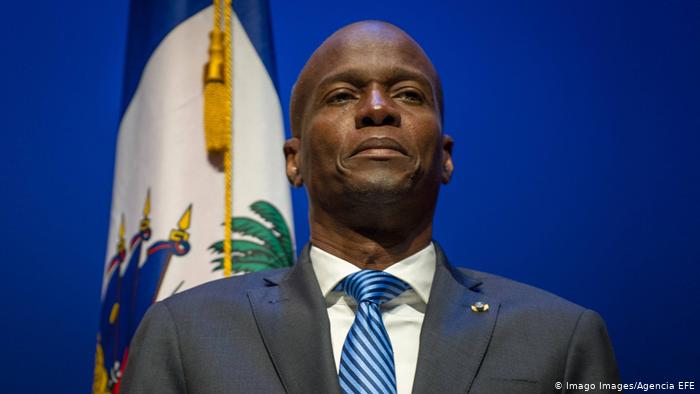The problems facing the country are still numerous even after the resignation of Prime Minister Joseph Jouthe, the fifth under President Jovenel Moïse, last Wednesday. The Prime Minister did not give a clear explanation of the reasons for leaving his post, but earlier in the year, Mr. Jouthe wrote a letter of resignation to the President, who refused to accept it. This time around, the President accepted the resignation and quickly found a replacement in former Minister of Foreign Affairs, Claude Joseph. One of the first steps taken by the new Prime Minister was to hold an information session with private sector organizations regarding the security issues plaguing the country. The new interim PM and the Police Chief invited heads of business organizations such as CCIO, AMCHAM, ADIH and ATH to apprise them of the new steps the government is taking to curb the spate of insecurity and kidnapping in the country. During the meeting, the business leaders made it known to the authorities that they expect strong and concrete efforts on their part and not just apologies. They want the government to take strong measures against the criminal gangs and their overloads who are the ones underwriting the criminal activities.
If the business class is holding the governments’ feet to the fire, the religious class was first to raise their voice against the deterioration of security in the country. In his homily on Thursday Aril 15, 2021 at the Saint Pierre Church in Pétion-ville, the President of the Episcopal Conference, Monsignor Launey Saturné evoked the need for countries that consider themselves friends of the Haitian people not to sit by as idle and passive spectators watching what the current situation. In the name of universal brotherhood and international solidarity, he went on to say, it is not good to let the country go to ruins, at a time when it appears as if the international community has given the current government a blank check to proceed with its unconstitutional referendum, while the same government has proven itself unable to address the security needs of the people. The Monsignor also charged people to take responsibility to effect change, recalling the message of Pope John Paul on March 9, 1983, during the Duvalier regime when the Pope stated that “something has to change here”, ’Fòk sitiyasyon sa chanje’’ . Monsignor Saturne concluded that people can’t take it anymore, Nou pa kapab ankò, nou bouke!
Cardinal Chibly Langlois echoed similar sentiments in an interview with AFP on the day when a stop work order was observed across the country to bring attention to current state of affairs. While the Catholic Church called for the work stoppage, there was complete surprise that the call was heeded across the nation, a sign that there is a collective fatigue with the current state of events. The Cardinal stated that faith leaders have made multiple appeals to key actors, through their preaching, and has invited these actors to participate in a dialogue of peace and understanding. Although these religious men are not called to play the role of mediator, their goal is to find ways in which they can help find a solution to the current crisis. The list of those opposed to the way the president is handling the state of affairs seems to be growing by leaps and bounds.
The founder and leader of the Presidents’ political party the PHTK, Liné Balthazar expressed disappointment with the constitutional reform the President is attempting to implement through a referendum. Mr. Balthazar stated that the technical conditions are not yet in place for such a referendum, all the while denouncing the authoritarian nature of the preliminary draft by the independent advisory committee. It is not enough for one to invent a constitutional problem when the real challenge is the inability of political actors to respect the rules. According to Mr. Balthazar Haiti has been carrying out two activities for 200 years: producing tailor-made Constitutions to please certain sectors and setting ourselves rules that we refuse to respect. This is what we have been doing since 1801. In our history, all the initiators of a new Constitution have done it to their advantage or against someone else, and in as much as the referendum is slated to take place within a month or two, the national identification card office, l’Office national d’identification (ONI) has not been able to deliver all the ID cards on time for voters to vote, when in fact this ID is an important tool in the referendum. With the Director General of the office of ONI, confirmed that the IDs cannot be delivered on time, Liné Balthazar contends that the referendum on June 27 will not take place, and those who think otherwise are misleading President Moïse and the Haitian people. Another party leader, a close friend of the President, former Senator Gabriel Fortuné is also distancing himself from the President, as well as former Senator Jean Hector Anacacis who was a supporter of the Jouthe government also calling on the President to listen to the voices of reason, but despite all these obvious internal opposition, the President is forging ahead with his plans, calling on the consultative body to continue its work.
Finally, with the failure of the group, Religions pour la Paix, to try one final time to initiate a process of dialogue between the government and various political actors, President Jovenel Moïse is now turning to the dysfunctional senate and the Supreme Court, Cour de Cassation, to try and relaunch the dialogue. The President met with the heads of both institutions in the National Palace on Monday April 19, 2021 to discuss the socio-political and economic situation in the country.
Dela Harlley

